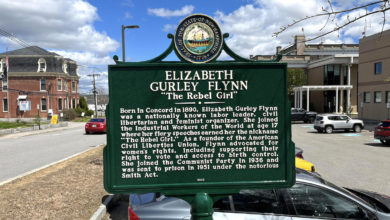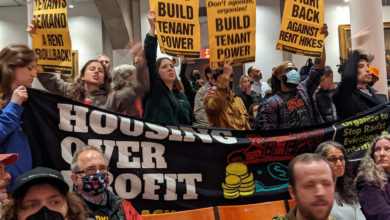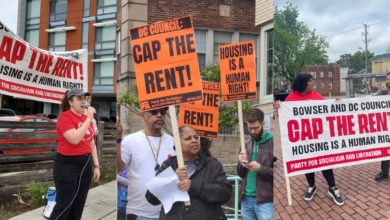Homeless residents of Manchester, New Hampshire, have been delivered yet another eviction notice — this time at the encampment behind Firestone Auto Care on Elm Street. Roughly 35 to 50 people had been living there, some for as long as a year.
This will be the third massive sweep in just five months. It follows the November eviction at Hillsborough Superior Court North, where more than 50 people were violently removed by State Police. About 20 people were hastily evicted from the the Amoskeag Bridge in February following a fire at the campsite.
“We are continuously seeing folks being pushed out from place to place,” said Alice, a local volunteer with New Hampshire Mutual Aid Relief Fund. “But you can’t just push out a group of people and ignore that they exist. They will exist, either that or they die. There’s only so many places left for them to go.”
About two dozen community members gathered April 10 to hold a rally on the corner of Granite and Canal Streets in response to the ongoing evictions. A large banner was painted that read “Stop the Sweeps!” and supporters held handmade signs reading, “Housing is a Human Right,” “Hands off the homeless,” and “Solidarity with our houseless neighbors!”
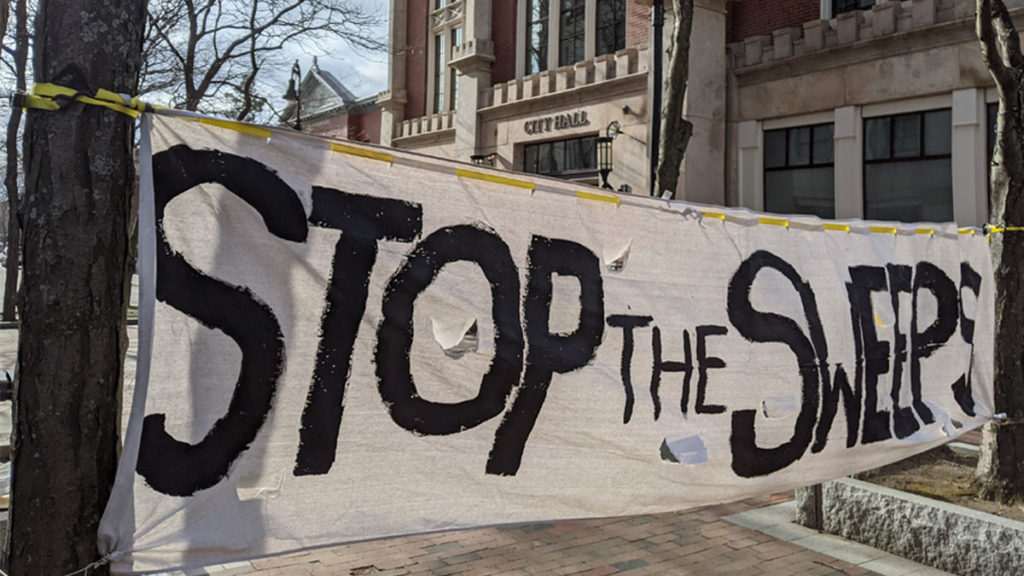
A follow-up rally of about 30 participants took place April 12 outside City Hall. It ended in a march to the Hillsborough Superior Court to hang signs on the fence erected to keep homeless people off the lawn after the eviction in November 2020.
Previous sweeps in Manchester have also been met with community protest and resistance, even managing to delay eviction by nearly a week in the case of the November 2020 Hillsborough Superior Court North eviction. Protesters remained on site day and night in solidarity with encampment residents, until the State Police arrived five days later than originally scheduled.
With little warning, the police began tearing down tents and trashing belongings, including vital medications. Many of those evicted from the courthouse lawn in November moved either to the Amoskeag campsite, later swept in February, or to the Firestone site, being swept now.
As homeless people in Manchester continue being evicted from every new location they move to, the community is asking, where are they supposed to go?
“With COVID, the amount of homeless folks has skyrocketed. There’s got to be like 500 or 600 homeless folks in this city, and there’s hardly anything for them,” NHMARF volunteer Alice explained, “and I can tell you as someone who’s slept in the shelter, it’s not good. That was one of the worst experiences of my life. […] They’re claiming that there’s enough shelter for everyone but it’s complete lies, and even if there was enough room the shelters are of such terrible, poor quality that I don’t blame folks for wanting to sleep outside instead. It’s frightening in there, from experience.”
City officials claim there are enough beds for everyone, but those who try to find open beds in shelters know this is not true, especially now that the emergency winter shelters have closed. They also have no understanding of those who do not want to or cannot stay at a shelter for a variety of reasons, including abusive staff, strict curfews, risk of personal belongings being stolen, and separation from partners.
City officials insist these individuals who do not live in shelters are just difficult and simply refuse to be helped. In reality, it is the city and state that refuse to offer real help. Not only that, they are responsible for creating the conditions that cause homelessness in the first place.
Manchester’s homeless population has more than doubled since the start of the pandemic. This could have been prevented if the state had acted to provide rent relief, guaranteed income to make up for lost wages, or raised the minimum wage for essential workers. The state could have done more to prevent this spike in homelessness in the past year — but they could have been doing more to prevent homelessness all along.
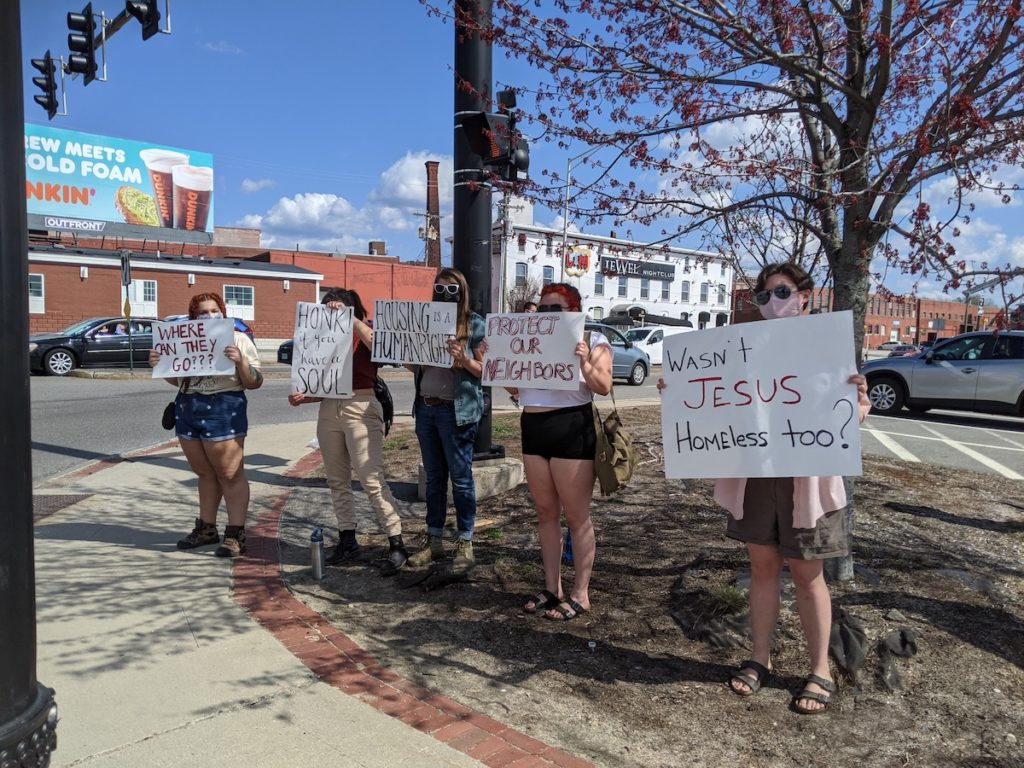
The average rent in Manchester is $1,479 per month, while the minimum wage in New Hampshire is $7.25 an hour. Raising the minimum wage to a living wage ($25 an hour for New Hampshire) and developing affordable housing, not more luxury apartments, could significantly decrease homelessness rates across the state. Utilizing the many vacant buildings to build shelters and rapid rehousing units could also improve the options for the unsheltered, in addition to creating better access to mental health and addiction recovery services.
The funds to meet these needs exist and could be easily allocated if our city budget was planned around meeting the needs of the community. Instead, the city’s 2021 budget granted the Manchester Police Department the largest raise it has ever had in funding the hiring of 10 new police officers.
It is the MPD, along with State Police, who carry out these evictions and are known to harass homeless people at their campsites. The city and state government care more about protecting private property than human lives.
Greatly reducing the police budget and instead funding our community’s actual needs could go a long way to alleviate homelessness in our city. Putting a roof over people’s heads and providing access to the resources they need, not just to survive but to live with real stability and fulfillment.



